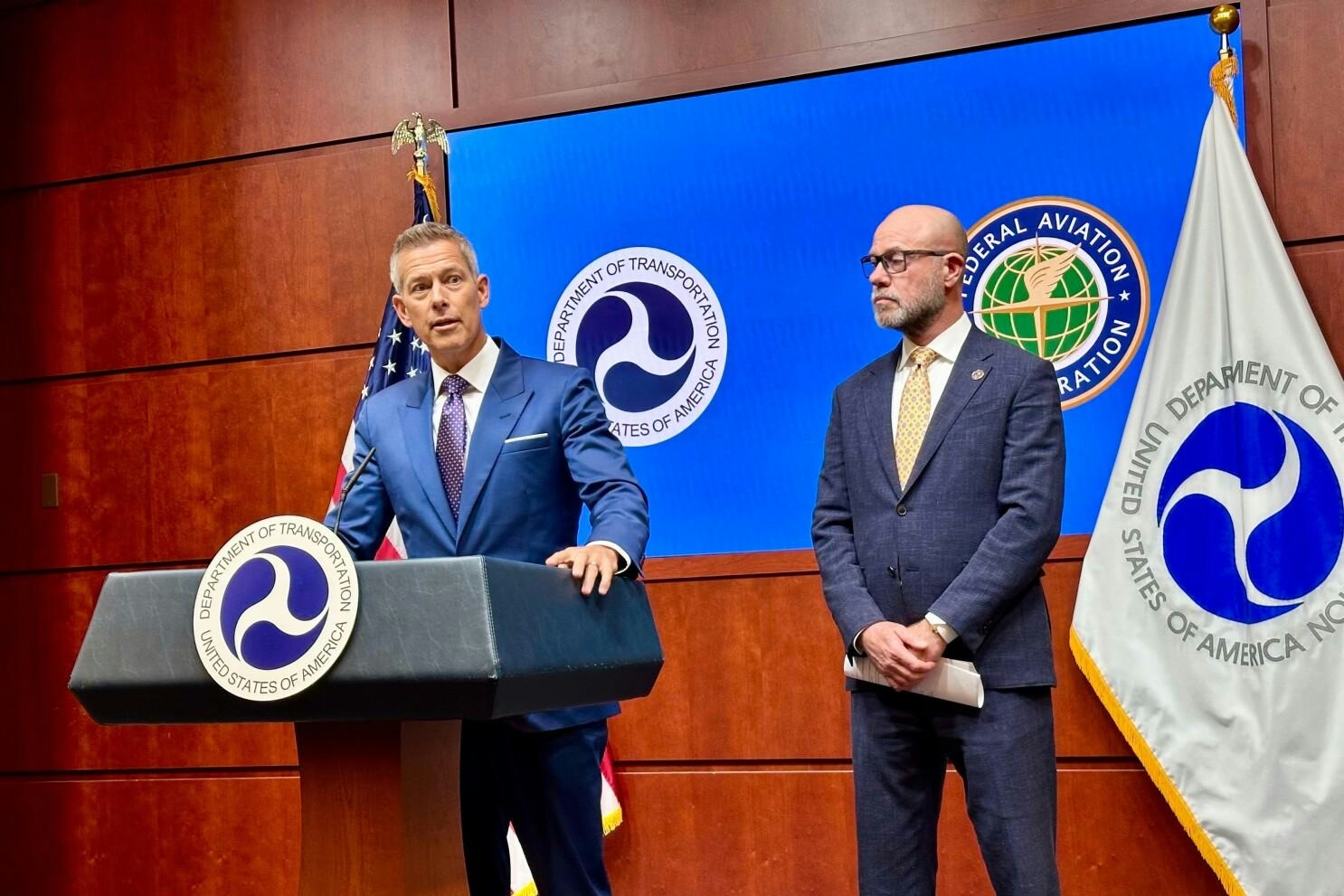AeroGenie — Your Intelligent Copilot.
Trending
Categories
Airline CEOs Urged Trump Officials to Defend Flight Reductions

Airline CEOs Seek Transparency Amid FAA-Imposed Flight Reductions
In the days preceding the implementation of government-mandated flight reductions, senior executives from major U.S. airlines engaged in private discussions with Trump administration officials, seeking greater clarity on the safety data that informed the Federal Aviation Administration’s (FAA) decision. On November 5, during a conference call with FAA Administrator Bryan Bedford, leaders from prominent carriers such as American Airlines and Delta Air Lines questioned whether the agency had identified risks that the airlines themselves had not observed. Sources familiar with the conversation revealed that Bedford, a former aviation executive, dismissed these concerns and emphasized that the FAA’s directive to reduce air traffic by 10% at 40 major airports was final and non-negotiable.
The flight reductions, which took effect on November 7, initially resulted in the cancellation of approximately 700 flights operated by major carriers. The FAA warned that further cuts would be necessary if the ongoing government shutdown persisted. This decision exacerbated existing challenges within the U.S. airline network, compelling carriers to rapidly adjust schedules and manage growing customer dissatisfaction.
Operational Disruptions and Industry Response
The imposed restrictions, compounded by severe weather conditions and systemic capacity constraints, have led to the cancellation of thousands of flights in recent days. These disruptions are expected to continue even as lawmakers work toward resolving the longest government shutdown in U.S. history. Although the Senate passed a temporary funding measure on November 10, uncertainty remains regarding the timeline for restoring normal operations.
Transportation Secretary Sean Duffy has affirmed that flight reductions will remain in place until air traffic controllers, many of whom have been furloughed due to the shutdown, return to duty. Since the onset of the shutdown, more than five million airline passengers have been affected, according to Airlines for America, the trade association representing the largest U.S. carriers.
Among the airline executives pressing for justification of the cuts was Alaska Air Group CEO Ben Minicucci, who was reportedly one of the most vocal in requesting detailed safety data. Executives from American Airlines and Delta Air Lines also urged Trump administration officials to address the escalating operational disruptions. Initially, American Airlines CEO Robert Isom downplayed the impact on customers but later acknowledged the potential for worsening conditions if the shutdown continued. Frontier Airlines CEO Barry Biffle went further, advising travelers to consider purchasing backup tickets on alternative carriers, highlighting the uncertainty faced by passengers.
Smaller airlines have borne a disproportionate share of the burden, struggling more than their larger counterparts to absorb the reductions due to limited network flexibility. Many of the flight restrictions have targeted regional services and less critical routes, adversely affecting smaller communities.
Despite their reservations, many airline leaders expressed a willingness to comply with the FAA’s orders, recognizing the heightened safety risks associated with the shortage of air traffic controllers. These concerns have been intensified by recent high-profile incidents, including a midair collision in January involving an American Airlines regional jet and a U.S. Army helicopter, which drew scrutiny of the FAA’s risk management practices.
Political considerations also influenced the executives’ approach, as they were cautious about publicly opposing directives issued under President Donald Trump, mindful of potential repercussions from the White House. A spokesperson for Alaska Air confirmed the airline’s participation in the FAA call but disputed certain characterizations of its comments, directing further inquiries to Airlines for America, which reiterated that “safety is always our shared top priority.”

Emirates Unveils Cabin Design for New Boeing 777X

Eighteen Years On, the Airbus A380 Remains Central to a $34 Billion Airline

How a boom in luxury airline seats is slowing down jet deliveries

Navitaire Outage Attributed to Planned Maintenance

DigiYatra Debuts Outside Aviation at India AI Impact Summit

Vietnam Orders Strengthen Boeing’s Commercial Outlook

Airbus Signals Uncertainty Over Future A400M Orders

JobsOhio Awards $2 Million Grant to Hartzell Propeller for Innovation Center

Collins Aerospace Tests Sidekick Autonomy Software on YFQ-42A for U.S. Air Force CCA Program

How the Airbus A350-1000 Compares to the Boeing 777
